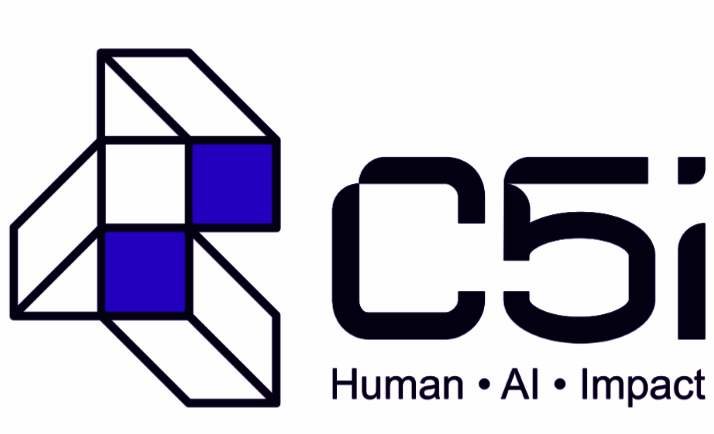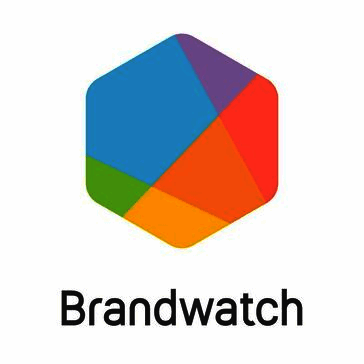Yes, most competitive intelligence solutions are intended to be accessible from numerous devices and platforms. This enables users to access the tools from desktops, laptops, tablets, and cellphones, independent of operating system. This flexibility allows users to collect and analyze competition data while on the road, enhancing productivity and efficiency. Furthermore, many competitive intelligence solutions include cloud-based storage, making it simple to access and share data across multiple devices.
List of 20 Best Competitive Intelligence Tools
SpyFu is the must-have marketing software for boosting your SEO and PPC success. Get valuable intel on backlink strategies, keyword performance, and rivals tactics. Our unlimited data and customizable reports give you the power to make informed decis...Read More SpyFu
WalkMe is human capital system that boosts productivity and cuts costs for businesses of any size. This all-in-one solution offers personalized training and support for employees to excel in their roles. With tailored features for position, language,...Read More WalkMe
Contifys News API is a solution designed specifically for businesses to access relevant and organized news and industry insights. Our APIs provide filtered and structured information directly into your existing applications and platforms through REST...Read More News API by Contify
Allintitle solution for keyword research, suggestion, and bulk checking. Empower your SEO strategy, dropshipping, and affiliate marketing with our powerful tool. Quickly uncover low competition, high performing keywords to boost your online presence...Read More Allintitle
C5i Compete, a competitive intelligence tool powered by AI technology. Our software offers real-time digital shelf analytics, keeping track of the key factors of sales including price, product, placement, promotions, and product reviews across multip...Read More C5i Compete
RetailScape solution for optimizing retail profits. Utilizing the advanced data analysis of Bungee Tech, RetailScape empowers retailers to monitor prices, promotions, product selection, and availability across multiple regions. Elevate your retail st...Read More RetailScape
Statista - the intuitive and comprehensive data platform designed to provide valuable insights on over 170 industries and 150+ countries. With trusted statistics, market forecasts, and consumer behavior analysis, Statista empowers businesses to make...Read More Statista
Crunchbase, Sales Intelligence platform catering to professionals in various roles such as sales, marketing, finance, recruitment, and leadership. Through personalized features like account suggestions, lists, and territory settings, Crunchbase strea...Read More Crunchbase
Soundcharts is music analytics platform that offers comprehensive data on artist activity, social media impact, and chart rankings. Ideal for music industry professionals, it provides valuable insights for strategic decision-making and optimizing pro...Read More Soundcharts
OttixHow, a retail sales and competitive analytics tool powered by AI technology. Designed for retailers, brands, and distributors, OttixHow offers valuable data-driven insights to optimize sales and increase profit margins. Keep ahead of the competi...Read More OttixHow
Kompyte is a competitive intelligence tool that helps you track and analyze your competitors website changes. This software simplifies the process of researching and monitoring your rivals, providing you with real-time updates and automating mundane...Read More Kompyte
Brandwatch Consumer Intelligence is a social media monitoring and analytics software. Keep a keen eye on online conversations and track brand performance with advanced tools that allow you to gauge sentiment and spot emerging trends. Stay steps ahead...Read More Brandwatch Consumer Intelligence
Brandwatch is a social media management platform designed to empower brands in engaging with their audience. It offers advanced research capabilities, real-time monitoring, and AI-powered analytics to assist in content curation and campaign managemen...Read More Brandwatch
Connotate is a sales intelligence software that is web-based and provides extensive coverage across various websites. Through advanced technology, it automatically identifies potential leads and tracks important customer updates by monitoring press r...Read More Connotate
Intelligence Plaza is a tool for efficient market and competitive intelligence. Maximize your business potential by harnessing actionable insights and making informed decisions. Through seamless integration and customized real-time data, Intelligence...Read More Intelligence Plaza
Intricately is a sales intelligence tool that harnesses the power of providers digital presence and provides real-time alerts. Every contact record is enriched with details about their role, responsibilities, and team composition. Stay in-the-know an...Read More Intricately
PowerAdSpy is a ad intelligence tool for uncovering your competitors strategies. With advanced AI-driven insights, easily discover and enhance your campaigns to save time, cut costs, and elevate your marketing efforts. Stay ahead of the competition w...Read More PowerAdSpy
AdSpy solution for optimizing your Facebook and Instagram ad campaigns. With the largest database of ads, this advanced tool provides unmatched search capabilities, demographic analysis, and real-time data. Save time and money by ditching trial and e...Read More AdSpy
Intelligence2day is a competitive intelligence tool designed to provide businesses with valuable insights into their market. This software streamlines processes to save time and reduce costs, making it an ideal solution for enhancing employee product...Read More Intelligence2day
EXIMAPS - a trade solution powered by advanced AI technology. This innovative software revolutionizes global trade by offering robust analytics, user-friendly interface, and valuable market intelligence. Facilitating seamless connections between expo...Read More EXIMAPS
Learn More About Competitive Intelligence Tools
- What Is Competitive Intelligence Tools?
- What Are The Recent Trends In Competitive Intelligence Tools?
- Benefits Of Using Competitive Intelligence Tools
- Important Factors To Consider While Purchasing Competitive Intelligence Tools?
- What Are The Key Features To Look For In Competitive Intelligence Tools?
- Why Do Businesses Need Competitive Intelligence Tools?
- How Much Time Is Required To Implement Competitive Intelligence Tools?
- What Is The Level Of Customization Available In Competitive Intelligence Tools?
- Which Industries can benefit the most from Competitive Intelligence Tools?
- Conclusion
What Is Competitive Intelligence Tools?
Competitive Intelligence Tools are vital for firms seeking an advantage in today's increasingly competitive industry. These technologies give businesses with useful insights and information about their competitors' strategy, products, and market position, helping them to make informed and strategic decisions. Competitive intelligence is the process of gathering, evaluating, and interpreting information about one's competitors and the entire market landscape.
It enables firms to evaluate their strengths and weaknesses in contrast to their competitors, identify potential threats and opportunities, and design successful market-leading strategies. Competitive Intelligence Tools (CI tools) are software or internet platforms that allow firms to collect and evaluate data about their competitors.
They use a variety of data sources, including public records, social media, and web scraping, to present a comprehensive view of the competitive landscape. CI tools give information like as market share, pricing analysis, product attributes, customer reviews, and competitors' social media presences. These solutions also provide data visualization capabilities, which help firms evaluate data and detect patterns or trends.
SEMrush, SpyFu, and Crayon are among the most popular CI tools, each with its own set of functionality and data sources. These tools not only assist organizations understand their competitors, but they also provide information about their own market positioning and potential areas for improvement.
What Are The Recent Trends In Competitive Intelligence Tools?
In recent years, the business scene has gotten more competitive, making it critical for businesses to keep ahead of their competitors' activities. This has led to an increase in the adoption of competitive intelligence products, which assist organizations in gathering and analyzing critical data about their competitors. Artificial intelligence (AI) and machine learning have become popular features in competitive intelligence products in recent years.
These technologies enable more efficient and accurate data collecting and processing, giving organizations actionable insights. AI-powered competitive intelligence solutions can also automate specific processes, allowing teams to focus on strategic planning and decision making. Another trend in competitive intelligence technologies is the integration of several data sources.
In today's digital age, there is a wealth of data available, and competitive intelligence technologies can now collect and analyze information from a variety of sources, including social media, news articles, and online reviews. This provides a more thorough perspective of competitors and their activity. Another significant trend in competitive intelligence technologies is a focus on real-time data.
With the rate at which sectors and markets evolve, firms must have access to the most recent information about their competition. Real-time data enables businesses to make faster and more informed decisions, providing a competitive advantage. Another notable development is the emphasis on user-friendly interfaces and visualisations.
As competitive intelligence technologies get more complicated and collect large amounts of data, it is critical that the information be presented in a clear and intelligible fashion. User-friendly interfaces and visualizations help firms detect trends, patterns, and insights. Finally, the rise of mobile-friendly competitive intelligence products is a new development. With the growing use of mobile devices, businesses can now access and analyze critical data on the go, allowing them to keep track of competitors' actions and make educated decisions regardless of where they are.
Overall, current advancements in competitive intelligence technologies aim to provide organizations with more precise, real-time, and user-friendly insights to help them stay ahead of the competition. When considering investing in a competitive intelligence tool, keep these trends in mind to ensure the best fit for your company's objectives.
Benefits Of Using Competitive Intelligence Tools
Competitive intelligence technologies can help firms gain useful insights about their competitors, market trends, and industry environment. These tools use a variety of data sources and analytical methodologies to assist firms in making strategic decisions and gaining a competitive advantage. Here are some significant advantages of investing in competitive intelligence technologies for your business:
1. Identify And Monitor Competitors: One of the most significant advantages of employing competitive intelligence tools is the ability to identify and track your competitors' actions. These tools can provide real-time updates on your competitors' new product releases, marketing campaigns, and pricing tactics, allowing you to gain a thorough grasp of their strengths and flaws.
2. Stay Ahead Of Trends: With a continually changing market landscape, firms must stay current on the newest trends and consumer behavior. Competitive intelligence technologies can collect and analyze data from a variety of sources, such as social media, news articles, and industry studies, to offer organizations with actionable insights about developing trends and shifts in customer preferences.
3. Evaluate Market Opportunities: Competitive intelligence technologies can also assist firms in identifying possible market opportunities by assessing market gaps, client wants, and current industry trends. This data can be utilized to create new products or services, penetrate new markets, or enhance existing offers in order to meet client demand.
4. Improve Decision Making: By delivering accurate and current information, competitive intelligence tools may help firms make data-driven decisions. This removes guesswork and reduces the possibility of making costly mistakes. Businesses with access to comprehensive data and insights can make well-informed decisions that align with their overall strategy objectives.
5. Save Time And Resources: Manual competitive research can take a long time and need a lot of labor. Businesses can save time and money by automating data collection and analysis using competitive intelligence solutions. This allows organizations to focus on more important tasks and make better use of their limited resources.
Important Factors To Consider While Purchasing Competitive Intelligence Tools?
There are a number of crucial things to think about when buying competitive intelligence products so that you can make the best choice for your firm. Any business that wants to get ahead of its competitors and stay ahead of them needs to invest in competitive intelligence technologies. So, before you buy something, you need to carefully think about these things. When buying competitive intelligence tools, keep these important things in mind:
1. Your Business Goals: The first and most important thing to think about is what your business wants to achieve. Before you buy any tools, you need to know exactly what you want to do. This will assist you figure out what features and functions your competitive intelligence tools need to have.
2. Data Sources: The quality and accuracy of your data will have a big effect on how well your competitive intelligence products work. So, it's important to think about where the tool gets its data from. Search for tools that get information from a wide range of places, such as social media, news sites, and reports from your field.
3. How Easy It Is To Use: How easy it is to use a tool is a crucial thing to think about, especially if a team will be utilizing it. For the tool to be useful and work well, it needs to have an easy-to-use interface and navigation. Think about getting a solution with a simple interface and dashboards that you can change to fit your needs.
4. Options For Customization: Every organization has its own needs and wants, and your competitive intelligence tool should be able to meet them. Find tools that let you customize them, such tracking specific competitors or choosing and keeping an eye on key indicators that are important to your organization.
5. Integrations: Make sure that the competitive intelligence tools you choose can easily work with the software and systems you already have. This will assist your job go more smoothly and keep you from having any problems with compatibility.
6. Cost And Scalability: It's important to think about the tool's cost and how well it can grow before you buy it. Set a budget and pick a tool that has a pricing plan that works for you. Also, think about if the tool can develop with your firm and adapt to its changing needs.
7. Customer Support: It's usually a good idea to pick a tool that has great customer service. If you have any technical problems or inquiries, having good customer service can be a huge help. Find tools that have a good reputation for quick and friendly customer service and offer more than one way to get help.
What Are The Key Features To Look For In Competitive Intelligence Tools?
Competitive Intelligence Tools are critical for firms seeking an advantage over their competition. With the ever-changing market landscape, it is critical to stay current on your competitors' strategy, tactics, and results. However, with so many options accessible in the market, how can you select the best Competitive Intelligence Tool for your company? Here are some crucial elements to look for in a Competitive Intelligence Tool before making a purchasing choice.
1. Data Collection And Analysis Capabilities: A Competitive Intelligence Tool's principal job is to collect and analyze data from a variety of sources, including social media, news articles, and online reviews. Look for a solution that has complete data collection and analysis capabilities, such as sentiment analysis, social listening, and data visualization. This will provide you with a comprehensive perspective of your competitors' activity, allowing you to detect patterns and trends.
2. Competitor Tracking And Monitoring: Keeping track on your competitors' activities and performance is critical for understanding their plans and staying current with their moves. Look for a platform that provides real-time tracking, alerts, and notifications for changes to your competitors' websites, social media updates, product launches, and other activities. This tool will allow you to remain ahead of the competition and make informed decisions quickly.
3. Detailed Data And Insights: A solid Competitive Intelligence Tool should give you with detailed insights and data on your competitors' performance, traffic, keywords, and other metrics. Look for a product that provides configurable reporting options so that you can acquire the information you require in the style you desire. This will save you time and effort in manually analyzing data, allowing you to concentrate on taking actionable steps.
4. User-Friendly Interface: A user-friendly interface is essential for properly using a Competitive Intelligence Tool. Look for a tool with an intuitive and user-friendly design, as well as a variety of filters and customization possibilities. This will allow you to efficiently navigate and evaluate data, even if you are not a data analyst.
5. Integration With Other Tools: Many organizations utilize a variety of tools and platforms to manage their operations and collect data. Look for a competitive intelligence solution that integrates with other tools like CRM, marketing automation, and social media management systems. This will enable you to optimize your operations, consolidate data, and gain a full understanding of your competition.
Why Do Businesses Need Competitive Intelligence Tools?
In today's highly competitive business environment, having relevant insights and information about your competitors is critical to success. Here is where competitive intelligence tools come into play. These technologies are intended to assist organizations in collecting, analyzing, and interpreting information about their competitors, market trends, and customer behavior.
Businesses can use these tools to obtain a thorough understanding of their sector, detect dangers and opportunities, and make better decisions. One of the primary reasons that firms require competitive intelligence tools is to keep ahead of the competition. These technologies enable organizations to track their competitors' strategies, tactics, and marketing activities, allowing them to alter their own strategies and stay ahead of the competition.
Furthermore, these techniques help to identify developing trends and consumer preferences, allowing organizations to adjust and remain relevant. This enables organizations to create products and services that match consumers' shifting requirements, giving them a competitive advantage. Another critical component of competitive intelligence tools is that they help firms gain a better grasp of their target audience.
Businesses can learn about their consumers' purchasing habits, preferences, and pain issues by studying their data. This information can then be used to create targeted marketing efforts and improve the consumer experience, resulting in greater sales and loyalty. Moreover, competitive intelligence technologies help firms make data-driven decisions.
Businesses may make more informed decisions about product development, pricing tactics, and other critical areas of their operations by evaluating market trends, competitor data, and customer insights. Overall, competitive intelligence tools are critical for organizations seeking to remain competitive and successful in their sector. They provide useful insights, help with decision-making, and allow firms to stay ahead of the competition. Investing in these technologies is a wise decision for any organization seeking to promote growth and success in a competitive industry.
How Much Time Is Required To Implement Competitive Intelligence Tools?
The time required to integrate competitive intelligence solutions vary according to the instrument and your business requirements. On average, it can take anywhere from a few weeks to many months. The initial setup and installation of the tool could take a few days or a week, depending on the tool's complexity and the size of your organization.
This involves creating user accounts, integrating the tool with your existing systems, and configuring it according to your individual needs. The next step is to train your team on how to use the tool properly, which can take anything from a few days to a couple of weeks. This is critical since the success of your competitive intelligence activities is dependent on how effectively your team uses the tool.
Once your staff has been taught and familiarized with the tool, it will take some time for them to collect data and insights and incorporate them into their decision-making process. This could take anywhere from a few weeks to a month, depending on how frequently data is collected and how quickly your team learns.
However, it is vital to recognize that competitive intelligence is a continuous process, and the time required for implementation is only the start. To effectively exploit the tool's functionality and consistently obtain important insights, it is recommended to set aside devoted resources and time on a regular basis.
What Is The Level Of Customization Available In Competitive Intelligence Tools?
The extent of customisation for competitive intelligence tools varies according to the instrument and provider. Overall, most competitive intelligence products provide extensive customization to match the user's specific demands and preferences. One of the most important elements of competitive intelligence tools is their capacity to collect and analyze data from several sources in order to deliver insights and reports on rivals, industry trends, and market opportunities.
As a result, most programs provide a variety of adjustable choices to allow users to personalize their research and analysis to their individual aims and needs. Some of the most typical customization choices in competitive intelligence products are the ability to select which competitors or organizations to track, the types of data to collect, and the frequency of data updates.
This enables customers to focus on the rivals and markets that are most important to their organization, saving time and money. Furthermore, many competitive intelligence products allow users to tailor the display of data and reports, such as selecting which metrics to include, how to graphically portray the data, and the level of information to be displayed.
This level of customisation allows users to evaluate data in the way that best meets their needs, making it easier to derive meaningful insights. Furthermore, some competitive intelligence systems have advanced customization options, such as the ability to set bespoke alerts for specific market events or changes, as well as the ability to link with other tools and platforms to facilitate smooth data exchange and cooperation.
It is important to note that, while most competiti6ve intelligence systems allow for extensive customization, some may have more constraints than others. Buyers must carefully evaluate and compare the customization options of several tools to determine which one best meets their needs and goals.
Which Industries can benefit the most from Competitive Intelligence Tools?
The utilization of Competitive Intelligence (CI) technologies has become a critical strategy for firms across industries. These tools assist businesses in gathering, analyzing, and applying information about their competitors in order to make more informed decisions and achieve a competitive advantage. The following industries can benefit the most from the adoption of Competitive Intelligence Tools:
1. Technology: Given the ever-changing technological landscape, firms in this field can profit substantially from CI tools. These technologies can help firms keep up with their competitors' latest product advancements, pricing strategies, and market trends, offering them a competitive advantage.
2. Finance: The finance industry is fiercely competitive, with financial organizations battling for consumers and investments. CI solutions can help organizations follow their competitors' financial performance, marketing initiatives, and regulatory developments, allowing them to make data-driven decisions.
3. Healthcare: In the fast-paced and tightly regulated healthcare industry, CI techniques can provide crucial insights into market trends, pricing tactics, and the competitive landscape. This data can assist healthcare providers and pharmaceutical businesses make more educated decisions on how to improve their services and offerings.
4. Retail: Retailers confront fierce competition both online and in-store. CI tools can help them monitor their competitors' pricing strategies, product offerings, and customer interaction practices. This data can help merchants change their pricing and marketing tactics to attract and keep customers.
5. Automotive: In a highly competitive and quickly changing business, employing CI technologies can be extremely beneficial. These technologies can help them keep track of their competitors' new product launches, pricing strategies, and marketing campaigns, allowing them to make informed business decisions.
Conclusion
After completing extensive research and assessing several competitive intelligence tools, we concluded that determining the ideal tool for your organization may be dependent on your specific goals and expectations. However, there are certain important considerations to consider when choosing a competitive intelligence product. To begin, the tool should have an easy-to-use interface and provide thorough data analysis to help you gain useful insights on your competitors.
It is also critical to look for a platform that provides real-time monitoring and surveillance of your competitors' activity. Furthermore, the tool should include a variety of capabilities that can help you achieve your business objectives, such as customisable reporting, competition benchmarking, and sophisticated analytics.
It is also important to select a product with a strong customer support system to ensure a seamless implementation and use. Furthermore, before making a final decision, it is critical to examine the pricing plans of various tools and their return on investment. Some solutions include a free trial period, which can be an excellent method to assess the tool's suitability for your organization.
Finally, using the correct competitive intelligence technology can significantly benefit your organization by offering useful insights and allowing you to stay ahead of your competition. We hope this buyer's guide has provided you with enough information to make an informed selection and find the best equipment for your business.
Competitive Intelligence Tools FAQ's
Can Competitive Intelligence Tools Be Accessed Across Multiple Devices And Platforms?
Is Competitive Intelligence Tools Future-Proof And Adaptable To Emerging Technologies Like Ai, Blockchain or Iot?
Yes, competitive intelligence tools are future-proof and adaptable to upcoming technologies such as artificial intelligence, blockchain, and the Internet of Things. These tools are continually changing and incorporating new technology in order to deliver more advanced and precise results. Competitive intelligence systems can evaluate massive amounts of data in real time using AI algorithms, while blockchain technology assures secure and reliable data collection and storage.
Furthermore, the integration of IoT devices enables seamless data collecting from a variety of sources, making competitive intelligence more accurate and efficient. As a result, firms may rely on these technologies over time to stay competitive.
Is There A Free Trial Offered To Assess Competitive Intelligence Tools Before Committing?
Yes, many competitive intelligence programs include a free trial period so that potential users can evaluate the features and capabilities before committing to a premium subscription. This enables firms to test the product and assess whether it is a good fit for their requirements. It is critical to use free trials to confirm that the product gives significant insights and satisfies your needs before making a long-term investment.
Does Competitive Intelligence Tools Offer Data Security Features And Meet Regulatory Compliance Standards?
Yes, most competitive intelligence solutions provide strong data security safeguards to protect sensitive information. They also follow regulatory compliance standards such as GDPR and HIPAA, which ensure the secure handling of personal and confidential data. These tools combine powerful encryption, secure data centers, and role-based access control to prevent illegal access and protect data privacy. Regular security assessments and updates also ensure that regulatory rules are followed consistently.
Can Competitive Intelligence Tools Integrate Seamlessly With Existing Tools And Platforms?
Yes, many competitive intelligence technologies work seamlessly with existing tools and platforms. This enables enterprises to access and evaluate data from numerous sources in one location. Some applications provide APIs and connections with prominent systems such as Salesforce, Google Analytics, and HubSpot. This interface simplifies data gathering and analysis, allowing businesses to get insights and make data-driven decisions.






















